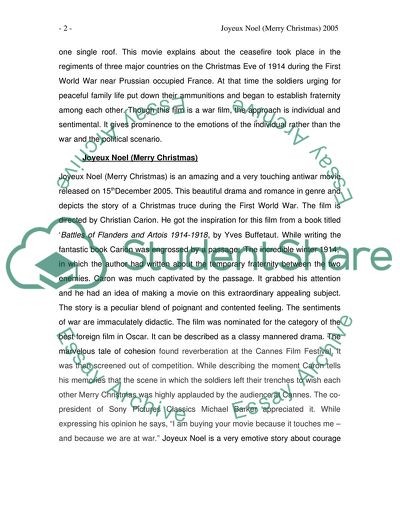Cite this document
(War Issues in the Joyeux Noel Film Movie Review, n.d.)
War Issues in the Joyeux Noel Film Movie Review. Retrieved from https://studentshare.org/social-science/1543255-movie-of-choice-joyeux-noel-merry-christmas-2005
War Issues in the Joyeux Noel Film Movie Review. Retrieved from https://studentshare.org/social-science/1543255-movie-of-choice-joyeux-noel-merry-christmas-2005
(War Issues in the Joyeux Noel Film Movie Review)
War Issues in the Joyeux Noel Film Movie Review. https://studentshare.org/social-science/1543255-movie-of-choice-joyeux-noel-merry-christmas-2005.
War Issues in the Joyeux Noel Film Movie Review. https://studentshare.org/social-science/1543255-movie-of-choice-joyeux-noel-merry-christmas-2005.
“War Issues in the Joyeux Noel Film Movie Review”. https://studentshare.org/social-science/1543255-movie-of-choice-joyeux-noel-merry-christmas-2005.


